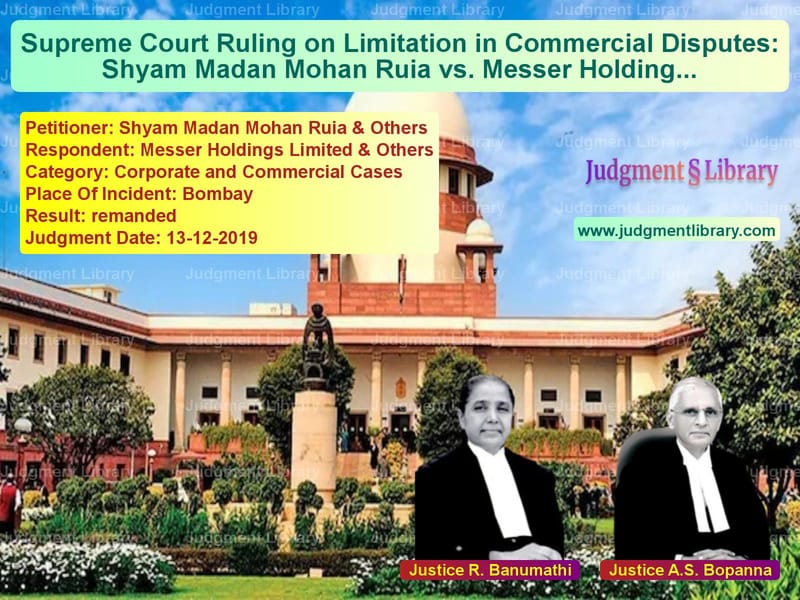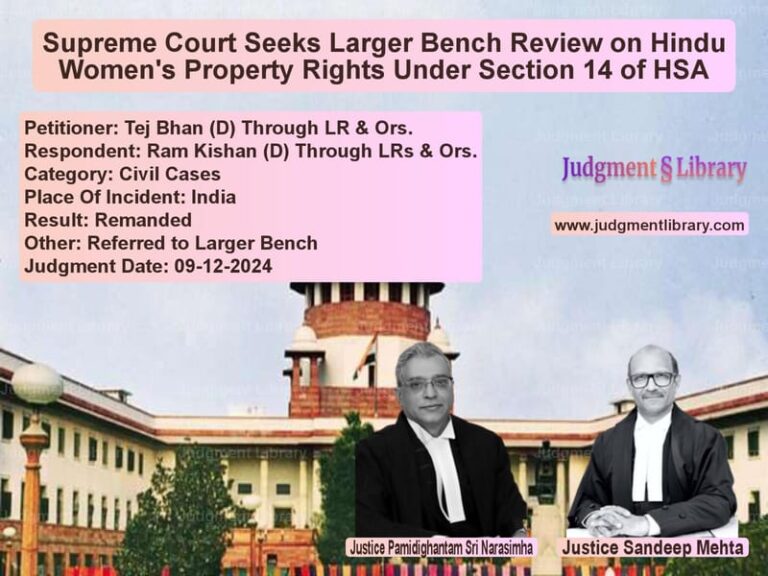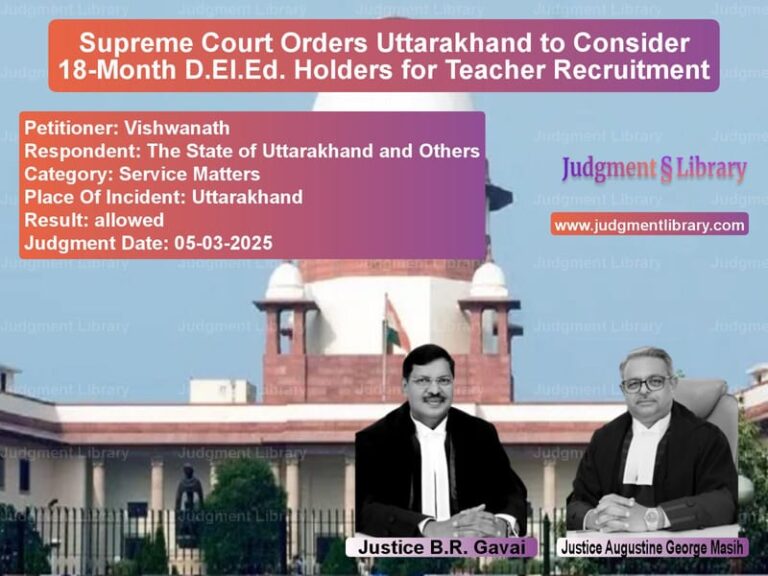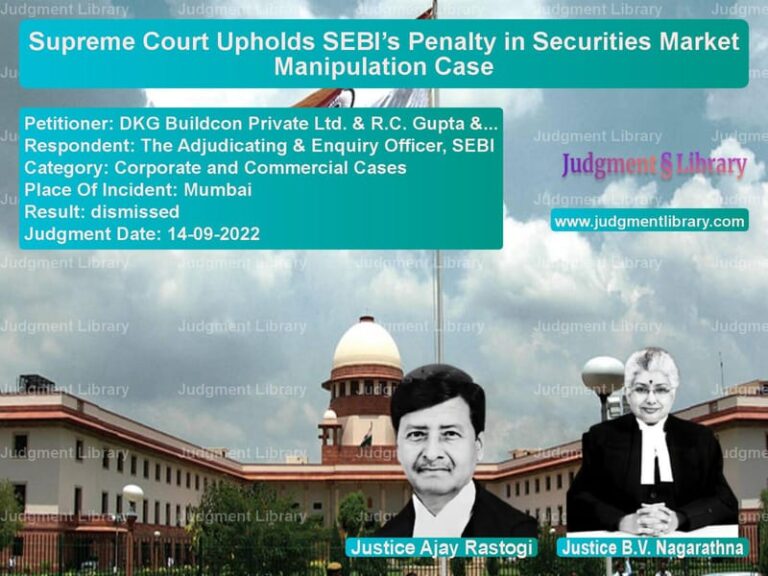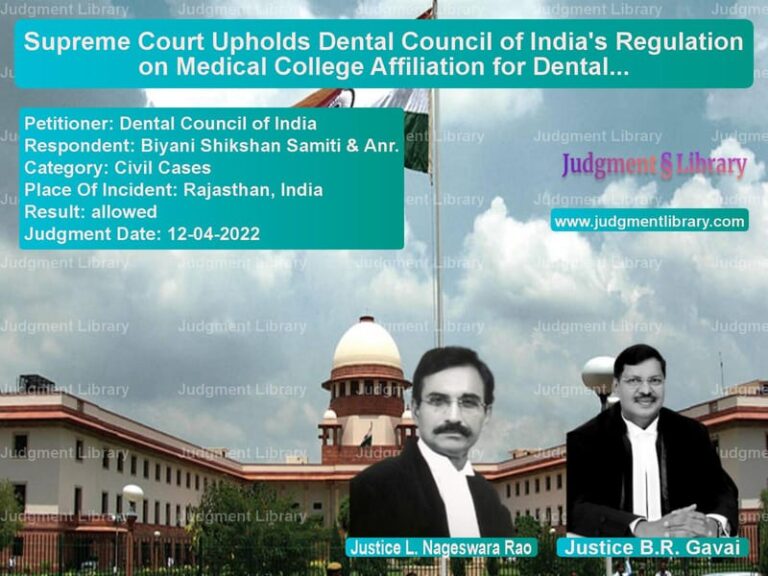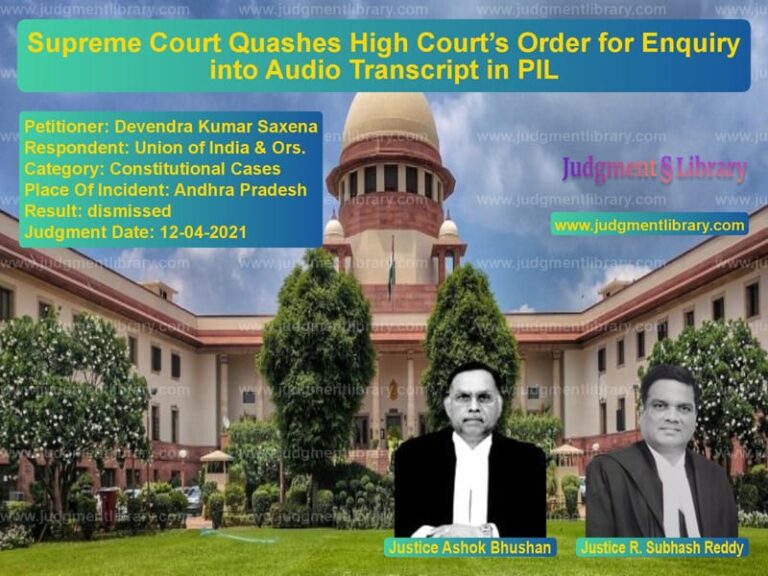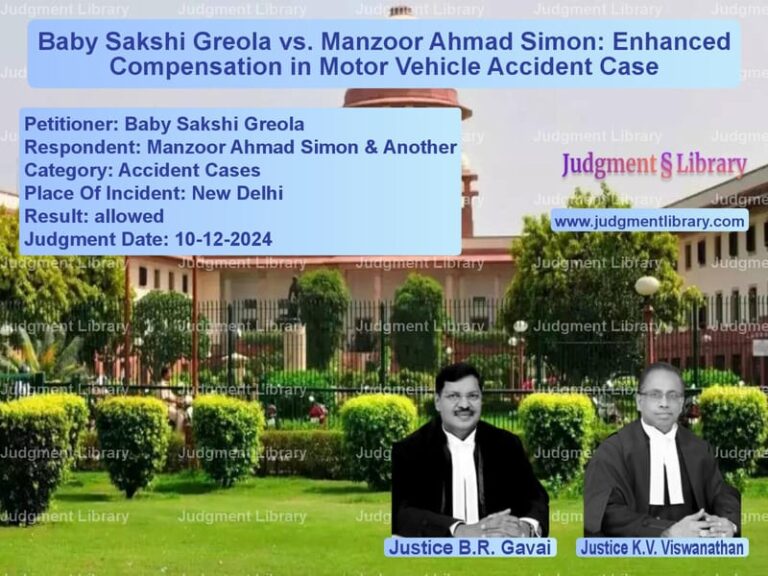Supreme Court Ruling on Limitation in Commercial Disputes: Shyam Madan Mohan Ruia vs. Messer Holdings
The Supreme Court of India, in Shyam Madan Mohan Ruia & Others vs. Messer Holdings Limited & Others, delivered a significant ruling regarding the issue of limitation in commercial disputes and the procedural aspects under the Code of Civil Procedure (CPC) in Maharashtra. The judgment clarifies how limitation should be determined in cases involving complex corporate transactions.
Background of the Case
The case revolves around a long-standing dispute concerning the ownership of shares in Bombay Oxygen Investments Ltd. (BOIL). The appellants, Ruias, entered into a settlement agreement with Messer Giresheim GmbH (MGG) on 05.12.2002, under which 75,001 shares of BOIL were purportedly transferred to them. However, Messer Holdings Limited (MHL) claimed ownership over these shares and challenged the settlement agreement in Suit No. 2410 of 2008, seeking cancellation of the settlement and other reliefs.
The appellants argued that MHL’s suit was time-barred since the agreement was executed in 2002, whereas the suit was filed only in 2008. The Single Judge of the Bombay High Court agreed with this contention and dismissed the suit on the grounds of limitation. However, the Division Bench reversed this decision, holding that MHL became aware of the settlement only on 14.10.2005, and hence, the suit filed in 2008 was within the limitation period of three years.
Legal Issues Before the Supreme Court
- Whether the suit filed by MHL in 2008 was barred by limitation.
- Whether the Division Bench of the Bombay High Court correctly interpreted the limitation period.
- Whether the matter should be remanded for trial, considering the procedural changes in the Maharashtra Amendment to CPC.
Arguments by the Appellants (Ruias)
- The cause of action arose in 2002 when the settlement agreement was executed.
- MHL was aware of the claim as early as 2002 when they were impleaded in Suit No. 2499 of 1999.
- The claim of MHL was time-barred under the Limitation Act, 1963, as they failed to file the suit within three years from the date of knowledge.
Arguments by the Respondent (MHL)
- MHL was kept in the dark about the settlement agreement and came to know of it only on 14.10.2005.
- The suit was filed within three years from the date of knowledge, making it within the limitation period.
- The Division Bench of the Bombay High Court correctly held that the suit was maintainable.
Supreme Court’s Judgment
The Supreme Court analyzed the relevant provisions of the Limitation Act, 1963, and the procedural changes introduced by the Maharashtra Amendment to CPC. It held that:
- The issue of limitation should be considered along with other substantive issues and not in isolation.
- The repeal of Section 9A of the CPC (Maharashtra Amendment) and the Supreme Court’s decision in Nusli Neville Wadia vs. Ivory Properties required that the issue of limitation be decided as part of the trial.
- The Single Judge’s order dismissing the suit on the ground of limitation was incorrect, as the issue should have been considered with other merits of the case.
- The Division Bench was correct in allowing the suit to proceed but should not have decided the limitation issue separately.
The Court observed:
“In view of the repeal of Section 9A CPC in Maharashtra and the decision in Nusli Neville Wadia, the issue of limitation cannot be decided as a preliminary issue in isolation but must be addressed along with other substantive matters in the suit.”
Final Decision
- The Supreme Court set aside both the Single Judge’s and Division Bench’s orders.
- The matter was remanded to the Bombay High Court for trial on all issues, including limitation.
- The trial court was directed to expedite the hearing and conclude proceedings within 18 months.
Key Takeaways from the Judgment
- The issue of limitation should be determined with all substantive issues and not as a standalone preliminary issue.
- The repeal of Section 9A CPC in Maharashtra affects how limitation pleas are adjudicated.
- Corporate disputes involving share transfers must be scrutinized carefully to determine the date of knowledge and applicability of limitation.
- The judgment ensures that commercial litigation is not dismissed prematurely on technical grounds and reinforces the importance of a full trial.
This ruling has significant implications for commercial and corporate litigation, clarifying the approach to limitation issues and procedural fairness in commercial disputes.
Petitioner Name: Shyam Madan Mohan Ruia & Others.Respondent Name: Messer Holdings Limited & Others.Judgment By: Justice R. Banumathi, Justice A.S. Bopanna.Place Of Incident: Bombay.Judgment Date: 13-12-2019.
Don’t miss out on the full details! Download the complete judgment in PDF format below and gain valuable insights instantly!
Download Judgment: Shyam Madan Mohan Ru vs Messer Holdings Limi Supreme Court of India Judgment Dated 13-12-2019.pdf
Direct Downlaod Judgment: Direct downlaod this Judgment
See all petitions in Company Law
See all petitions in Shareholder Disputes
See all petitions in Corporate Governance
See all petitions in Bankruptcy and Insolvency
See all petitions in unfair trade practices
See all petitions in Judgment by R. Banumathi
See all petitions in Judgment by A. S. Bopanna
See all petitions in Remanded
See all petitions in supreme court of India judgments December 2019
See all petitions in 2019 judgments
See all posts in Corporate and Commercial Cases Category
See all allowed petitions in Corporate and Commercial Cases Category
See all Dismissed petitions in Corporate and Commercial Cases Category
See all partially allowed petitions in Corporate and Commercial Cases Category

